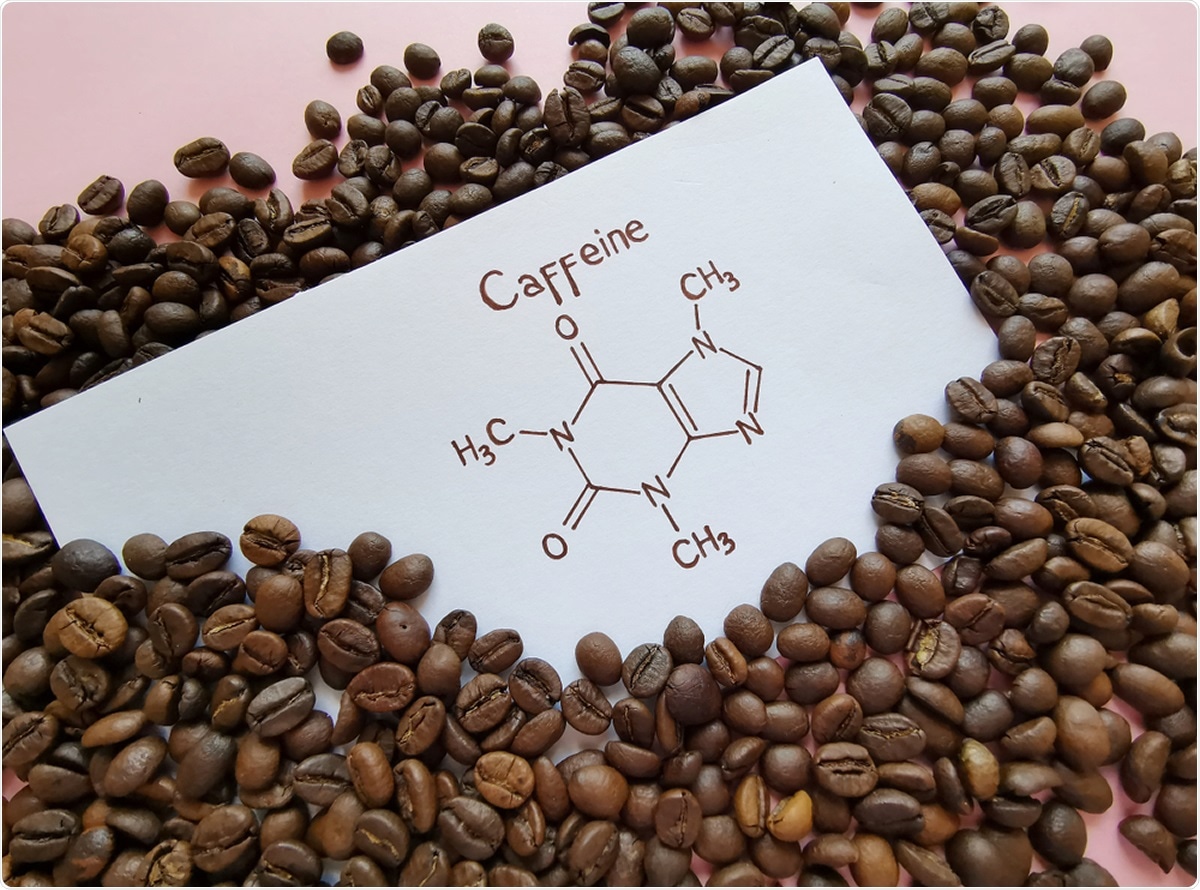Coffee, cola, or an energy drink: caffeine is the world's most widely consumed psychoactive substance. Researchers from the University of Basel have now shown that regular caffeine intake can change the gray matter of the brain. However, the effect appears to be temporary.

Image Credit: Danijela Maksimovic / Shutterstock
No question - caffeine helps most of us to feel more alert. However, it can disrupt our sleep if consumed in the evening. Sleep deprivation can, in turn, affect the gray matter of the brain, as previous studies have shown. So can regular caffeine consumption affect brain structure due to poor sleep? A research team led by Dr. Carolin Reichert and Professor Christian Cajochen of the University of Basel and UPK (the Psychiatric Hospital of the University of Basel) investigated this question in a study.
The result was surprising: the caffeine consumed as part of the study did not result in poor sleep. However, the researchers observed changes in the gray matter, as they report in the journal Cerebral Cortex. Gray matter refers to the parts of the central nervous system made up primarily of the cell bodies of nerve cells, while white matter mainly comprises the neural pathways, the long extensions of the nerve cells.
A group of 20 healthy young individuals, all of whom regularly drink coffee daily, took part in the study. They were given tablets to take over two 10-day periods and were asked not to consume any other caffeine during this time. During one study period, they received tablets with caffeine; in the other, tablets with no active ingredient (placebo). At the end of each 10-day period, the researchers examined the subjects' gray matter volume employing brain scans. They also investigated the participants' sleep quality in the sleep laboratory by recording the brain's electrical activity (EEG).
Sleep unaffected, but not gray matter
Data comparison revealed that the participants' depth of sleep was equal, regardless of whether they had taken the caffeine or the placebo capsules. But they saw a significant difference in the gray matter, depending on whether the subject had received caffeine or the placebo. After 10 days of placebo - i.e., "caffeine abstinence" - the gray matter volume was greater than following the same period of time with caffeine capsules.
The difference was particularly striking in the right medial temporal lobe, including the hippocampus, a region of the brain that is essential to memory consolidation.
"Our results do not necessarily mean that caffeine consumption has a negative impact on the brain," emphasizes Reichert. "But daily caffeine consumption evidently affects our cognitive hardware, which in itself should give rise to further studies." She adds that in the past, caffeine's health effects have been investigated primarily in patients, but there is also a need for research on healthy subjects.
Although caffeine appears to reduce the volume of gray matter, after just 10 days of coffee abstinence, it had significantly regenerated in the test subjects.
The changes in brain morphology seem to be temporary, but systematic comparisons between coffee drinkers and those who usually consume little or no caffeine have so far been lacking."
Dr. Carolin Reichert, University of Basel
Source:
Journal reference:
- Lin, Y-S., et al. (2021) Daily Caffeine Intake Induces Concentration-Dependent Medial Temporal Plasticity in Humans: A Multimodal Double-Blind Randomized Controlled Trial. Cerebral Cortex. doi.org/10.1093/cercor/bhab005.